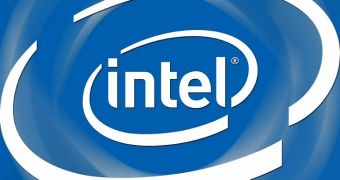On the one hand, it is fairly disheartening that we keep hearing about how the next-generation central processing units from Intel are getting pushed back. On the other hand, it would have been odd for the Broadwell-K line to not be delayed when the main Broadwell series already has been.
Once upon a time, Intel planned to introduce the first Broadwell-based Core-Series, Celeron and/or Pentium central processing units at some point this year, maybe as early as the third quarter.
That plan has since changed, with December being pegged as the earliest ETA, although the best bet is still January 2015, during the Computer Electronics Show (CES 2015) or thereabouts.
All the while, the Skylake-based CPU line continues to be set for a mid-2015 release, complete with a new socket, which suggests that the Broadwell's lifespan will be remarkably short.
No new rumors have arisen to confirm or deny this, but Chinese VR-Zone website has posted the updated roadmap, in a sense, for the Broadwell-K lineup.
This is strange, however, as the delay from early 2015 to mid-year makes the Broadwell-K chronologically synced with the next generation of central processing technology, Skylake.
If this were the Broadwell-E series, it would not be strange at all. After all, when Ivy Bridge came out, Sandy Bridge-E/EP took over the extreme-performance/workstation segment. Then, later, Ivy Bridge-E followed when Haswell and Haswell-K debuted.
Pushing Broadwell-K back to the middle of 2015 implies that the processors will coincide, timeline-wise, with the Skylake-K (the K is the suffix added to the CPUs with unlocked multipliers and, thus, major overclocking potential).
Admittedly, the previous launch window for Broadwell-K wasn't much sooner: mid-May to late-June 2015, but it's still a delay.
At this point, there are two possibilities. One is this: Intel will delay Skylake-K CPUs just like it did with the Broadwell-K. Probably because it doesn't expect the chip fabrication yields to improve enough (the 14nm process isn't doing well). The second possibility is that the whole Skylake line will be delayed (contrary to previous, but still recent reports to the contrary, some of which came from the same source as this one).
The second option might actually make more sense, because the Skylake CPUs need motherboards with different sockets from Broadwell / Broadwell-K, so it would be awkward to have a core chip line with LGA1151 compatibility but enthusiast-class CPUs with LGA1150. Especially since that would mean that the overpowered CPUs would be compatible with existing 8-Series and 9-Series mainboards, but the “normal” ones wouldn't be. A truly backwards situation if ever there was one.

 14 DAY TRIAL //
14 DAY TRIAL // 
